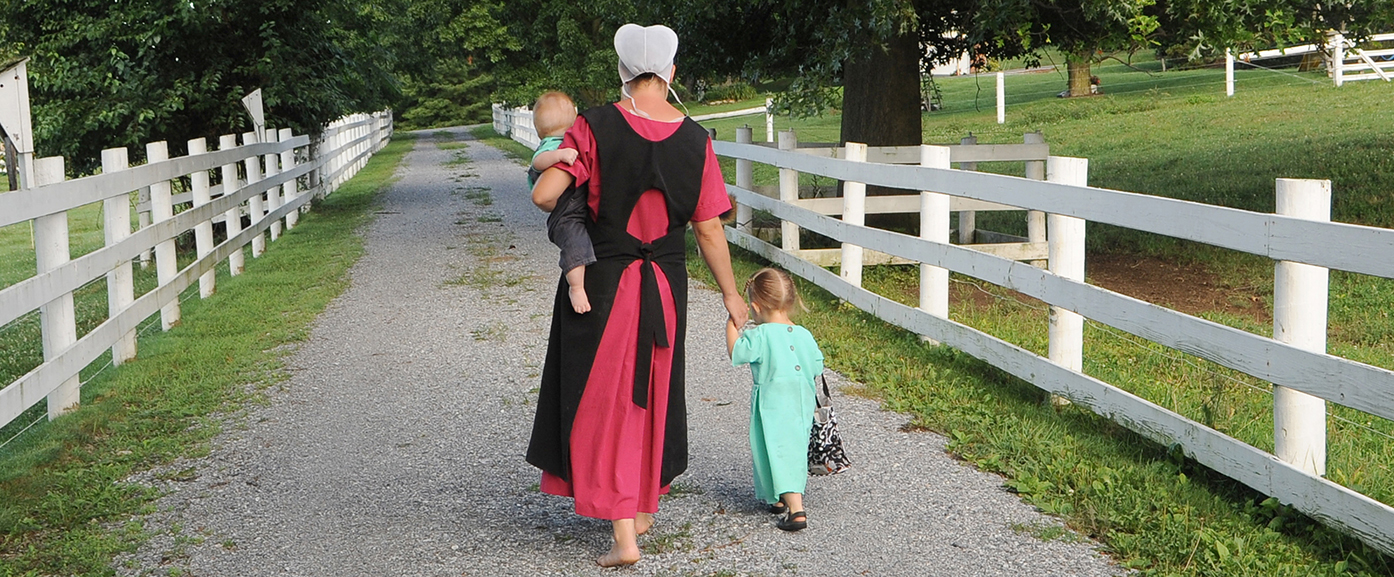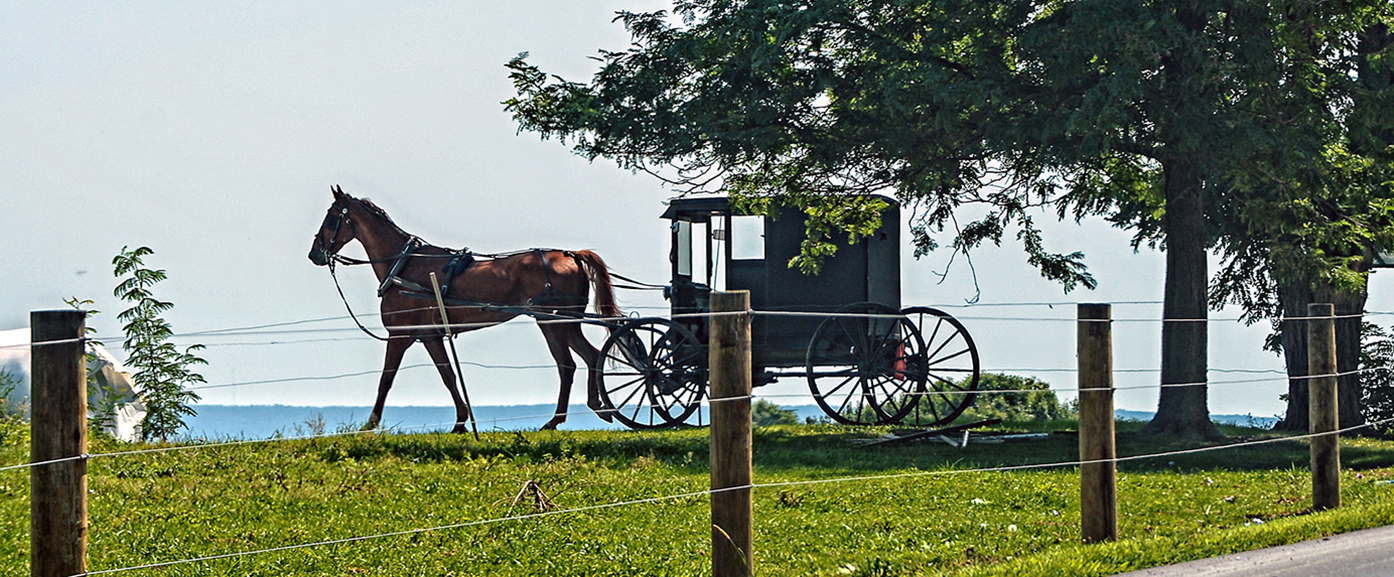
Written by Art Petrosemolo
I met Garden Spot Village resident Gladys Z’s daughter in the pool earlier this summer and learned she was a retired Nurse/Midwife. My grandmother had been the first midwife in New Haven, CT in the late 19th and early 20th centuries and delivered babies until she was 80. I always have been intrigued by the profession and knew Plain families in Lancaster County often preferred, or so I thought, midwives when they had their children. I pitched the story to my Ephrata Review editor and he expanded the research. “I understand that more members of the Plain communities are choosing to have their babies in the hospital now,” he said, and asked me to include that in my story research.
The whole thing is a little (OK a lot) out of my comfort zone but I sometimes do my best work when I know the least about the subject. I dived in, literally, and although I didn’t smash my head on the bottom of the pool, I got in pretty deep and what I found was very, very interesting.
The complete story ran in the Ephrata Review and Lititz Record, so I offer the backstory here.
So here’s my Plain Families’ Baby Adventure. I start from underwater. I don’t know any midwives and the Heart and Hands group of midwives (two) here in New Holland seemed too busy to talk to me and blew me off twice. I did get a favorable response from the Wellspan Group in Ephrata and had a chance to meet with their community outreach person, Joanne Eshelman, in July.
I learned fairly quickly that there is outreach to Plain families from the hospitals and there has been for years. They do seminars for ministers and the aid groups that support Plain families. The hospital even prints, as I found many do now, a list of costs related to birthing (and other) medical services. Amish and Mennonites pay cash for medical services and usually negotiate a price. If they can’t afford the service needed, they reach out to their church or aid group for help.
According to Steven Nolt at the Elizabethtown College’s Young Anabaptist Center, who is my go-to person on questions re. Plain families, there are very, very few Plain families who have traditional health insurance. It just isn’t part of their tradition.
Ms. Eshelman could not give me definitive figures on how many Plain families they take care of for maternity services. Some families do their pre- and post-natal care in a hospital but choose a traditional midwife for the actual birth, whether it happens at home or a birthing center.
An OB GYN at Heart of Lancaster Hospital in Lititz confirmed many of the things I learned at Wellspan but Dr. Sheree Livingston stated emphatically that research shows the safest place to have a baby is in a hospital and she felt that Amish and Mennonite would-be mothers were actually getting the message as they have seen an increase in in-hospital births. Heart of Lancaster also reaches out to the Plain communities with educational programs.
So, I’m good with the hospital side of things and think I have a handle on Amish and Mennonite women having their children. Was I wrong? I learned the other side of the story when I visited with my Amish and Mennonite friends. First, as good friends as I have become with a number of families, the wives weren’t jumping for joy when I started asking about where they had their children and why. “Why do you need to know that Arthur?” was the usual response and I am not sure any of them were happy with the fact that I was going to write about it and if I did I surely wasn’t going to be able to use their name.
What did I learn? I learned that it’s a toss of the coin. Some Plain mothers-to-be look forward to two days in the hospital for some needed “rest.” Others want the baby-friendly skin-to-skin bonding available when having a baby at home. Other families said my mother and grandmother had her children at home and I want to do the same. There was no consensus.
And I believe cost does play a factor. Midwives charge less than doctors and if you are planning a big family, a $7,000+ bill for a hospital birth does add up quickly with multiple births.
In Pennsylvania, the only midwives licensed to deliver babies in a hospital are nurse midwives. These individuals earn a four-year nursing degree plus a master’s degree in midwifery. There are 15 nurse midwives in Lancaster County and six practice out of the Birthing Center in Paradise.
Maren Ketcham at the Center was very helpful. She said midwives at the Center handle more than 500 births a year; 60% of the births occur in the Center where they have three in-patient rooms. Birthing Centers actually can discharge patients to the care of their families – which many Amish and Mennonite new-mothers desire – four hours after giving birth.
What did I learn? A lot! Are there trends? Maybe, but they are very hard to track as no one is keeping records on where Plain families choose to have their children. It was agreed upon by everyone that the welfare of the mother and baby were paramount and if a pregnancy or birth was complicated, everyone recommended a hospital birth and procedures were in place so that would happen.
I enjoyed doing the story but it was one that is way outside my comfort zone as my Plain family friends soon reminded me.
